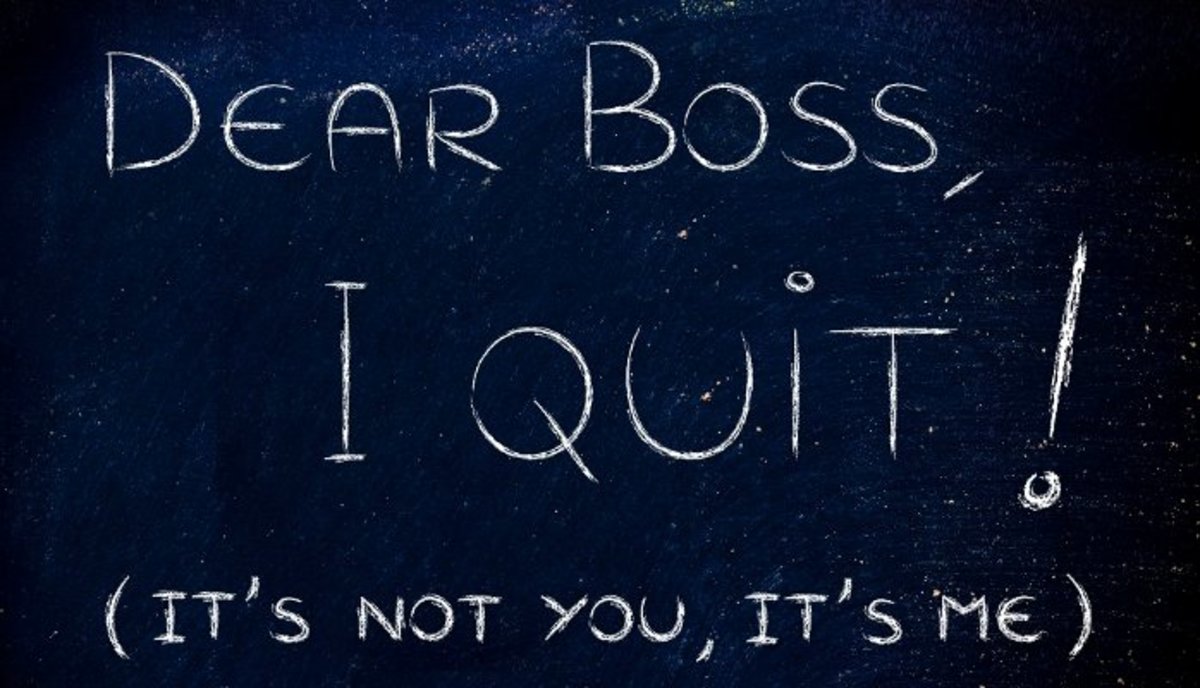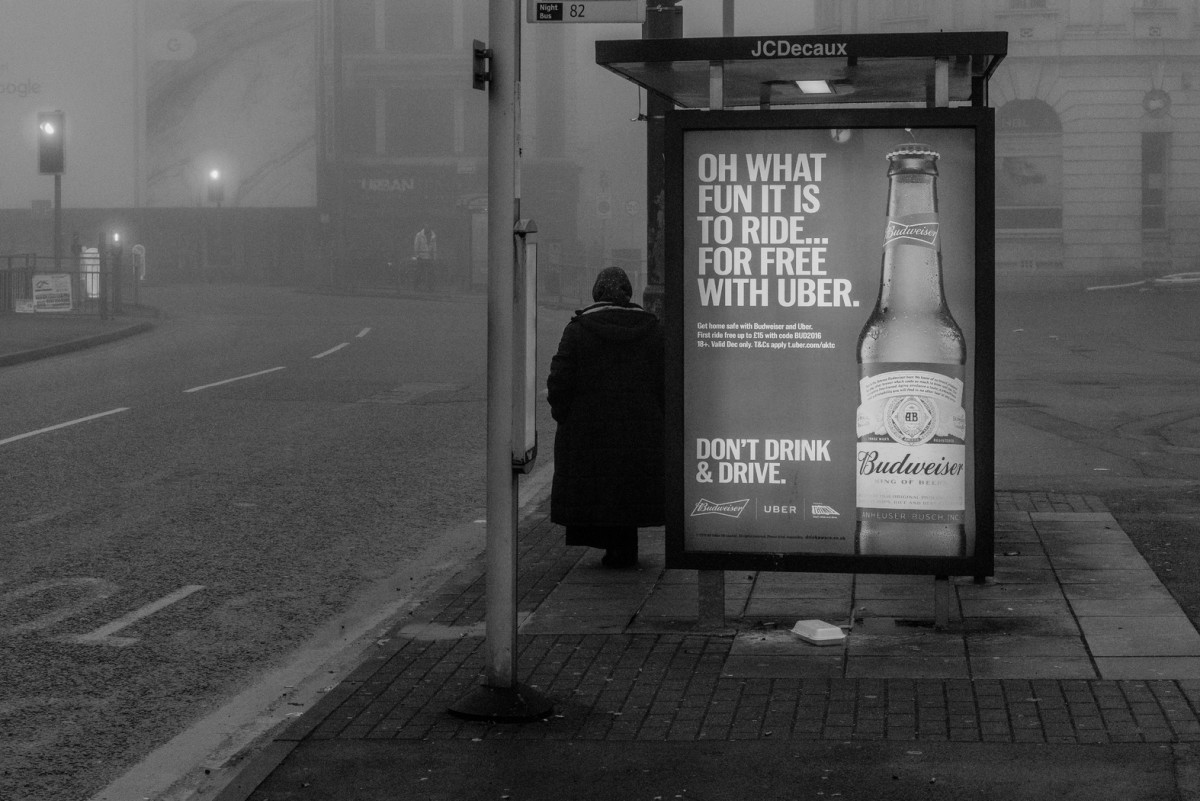- HubPages»
- Business and Employment»
- Employment & Jobs»
- Employment Advice & Tips
10 Facts That Say You Might Quit Your Job or Get Fired

Introduction
You never know what happens in white-collar jobs, irrespective of your eminence and significance in the workplace; you just can never tell when you will get the ax and be on your way out through the front door. This piece is meant to expose to you those moments that sum up the critical periods in your place of work. From the minute you became to a worrisome employee, to the moment you were handed the brown (or whichever color, it doesn’t matter) envelope by a face with a smirk on it.
Unlike family businesses, white or blue-collar jobs, the ones where you answer to a boss are completely unpredictable. You might be the hero yesterday when you were the reason the company just signed off on a lucrative contract and the next day you are the villain. The example that needs to be set - ‘The Scapegoat’ as most Directors and Executive Officers would prefer, as those two words come with a strong message.
Your invisibility rating is zero, and finishing this piece will help you figure out when things start going sideways.

1. Hate It every Monday morning?
Is it normal for you to hate your job at any moment? Yes! It is hard to maintain a consistent level of energy or passion for something. It can be tiring whenever one remembers there is work the next day while having fun with friends in a favorite hangout spot. You either watch what you drink or you don’t. The oxytocin dilemma can be frustrating.
Sometimes, it is not always about parties but rather the thoughts of having to attend to disrespectful and annoying customers or the tons of documents that need to be processed. Despite the odd sides of the job, it still pays the bills, so it is worth it until that dream job comes around.
Until then, if you make it a habit to hate the job more frequently than Monday mornings, then you should know that you are on course of seeing yourself out the front door.

2. You just want to quit the job
What happens when you start hating the job and all you see is actually the odd or bad sides of the job, what then? What happens when you hate something? Whatever that is, you just want to cut it off, even if it is your job.
You’ve become a ‘perpetual latecomer’, yet, you show no remorse whatsoever. You go for launch breaks and return one hour later than you are supposed to and you are not bothered. There is always a zero-tolerance for lateness in any workplace, and continuously disrespecting this rule can get you fired.

3. You just do not care about your job again
In relationships, it is said that love fades with time. Our dopamine levels, of course, cannot always meet our expectations. Whereas it is normal to experience a drop in passion for your job at any time, it is not normal to stop being concerned about your output and efficiency.

4. Has Google become the new friend helping you find a better job?
Have you have been googling how to make a lot of money working from home and loving the idea with each query you log in?
You might get lost in your dreamland while seeking greener pastures, forgetting about the reality that faces you. Like all the files that need to be processed, the emails that need to be replied, and the leads that should be followed up. It is good to dream big, but it also disastrous to immerse yourself in fantasy when real-life responsibilities are knocking.
All these translate to risking a sack after performance reviews.

5. You are habitually ignore your boss’s calls
In or away from the workplace, an employer wants to be able to reach an employee on phone for different reasons. Tenaciously staying incommunicado is not something any employer wants from an employee. Communication is important for any business to grow, and the most important part of teamwork is communication.
If your boss cannot communicate with you as often as deemed satisfactory, it can be interpreted as a purposeful act to undermine. There are a few things that frustrate employers more than not being able to reach an employee in a critical moment.

6. You are less concerned when your boss scolds you
It is the job of every business manager or director to make sure teams are producing results, and that involves scolding unprofessional and unproductive employees.
When you don’t worry about a problem it means you don’t think it is a threat to your survival. Humans are designed by nature to respond with solutions when faced with survival threats.
If your boss suspects you are not heeding to advice or making corrections, it is only a matter of time before you are let go.

7. Boss wants to know what you know?
This particularly applies to start-ups and small scale businesses because, in a business or company where there are five hundred employees or more, the manager doesn’t need to learn your skills. This is likely to happen if you occupy a role in a team of less than ten, with limited funds for recruitment.
Regardless of your abilities, no boss will tolerate an employee that feels untouchable – fostering discord among other team members in the process. So what is the plan of your employer? To know what you know, theoretically and practically.
This might not be direct, as you might be asked to feed your knowledge to a so-called “Intern” who has been secretly recruited to replace you.

8. Your boss starts doubting your worth.
The summary of this stage or phase is ‘You have lost a vote of confidence’. Your boss has either lost confidence in your skills; more practically, not convinced that you can still add value to the company.
Remember, ‘Skills/abilities can get you to higher places, but only your attitude keeps you there’
Character is the key to success. Not liking your job is not an excuse to not respect it. If you took the job then you have to do the job, and well.
Work and earn back your employer’s respect and trust.

9. You tell people you want to, or have quit your job
This is the later stage. The end of a tragic story per se. It is common among job owners with the intention of resigning or sense they are about to get fired.
In this case, you are given a letter that appreciates your contributions since your employment, but unfortunately, you are no longer needed. Another scenario is, you hand in your letter of resignation, to be able to pursue your dreams.
It is either you are asked to leave or you ask to leave.
10. Is your answer ‘YES’ to five out of the above nine signs?
Pause for a moment and scroll up, then give answer to each of the other nine (9) signs that has been discussed; a straight YES or NO.
Now, how many YES did you answer? Did you answer YES to at least five (5) signs?
If you did, then you should know that there is a 50/50 chance that your current job is not secure and you should probably positively transform your activities in your workplace.
Fact Check
Have you noticed any of these signs in your job?
This content is accurate and true to the best of the author’s knowledge and is not meant to substitute for formal and individualized advice from a qualified professional.








